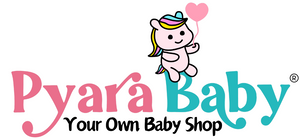Month 1: The Newborn Stage
 In the first month, your baby is adjusting to the world outside the womb. Expect lots of sleep, frequent feedings, and diaper changes. Newborns typically sleep 16-18 hours a day and wake up every 2-3 hours to eat. Look out for their first smile, although it may just be gas!
In the first month, your baby is adjusting to the world outside the womb. Expect lots of sleep, frequent feedings, and diaper changes. Newborns typically sleep 16-18 hours a day and wake up every 2-3 hours to eat. Look out for their first smile, although it may just be gas!
Month 2: Growing Awareness
By the second month, your baby is becoming more alert and responsive. They might start to recognise your face and voice. You may notice more purposeful movements and the beginnings of social smiling. Tummy time is essential now to help strengthen neck muscles.
Month 3: Developing Personality

At three months, your baby’s personality starts to shine through. They may begin to coo and babble, responding to you with a smile or laugh. Motor skills are improving, and they can lift their head and chest during tummy time.
Month 4: Exploration and Interaction

Four-month-olds are curious about their surroundings. They begin to reach for objects, bringing them to their mouth. This is a period of rapid sensory development. You'll notice more giggles and the ability to roll from tummy to back.
Month 5: Enhanced Mobility
Your baby is likely rolling over both ways now and might start to sit with support. They enjoy playing with their hands and feet, and may start to recognize their name. Babbling increases, and you might hear different consonant sounds like "m" and "b".
Month 6: Halfway Milestones
At six months, many babies can sit without support and may begin to show signs of crawling. Introducing solid foods usually starts around this time. Your baby will enjoy new tastes and textures. Look out for the first teeth, as teething can start now.
Month 7: Increased Independence
Seven-month-olds are often on the move. Whether it's rolling, scooting, or crawling, mobility is expanding. They can transfer objects between hands and enjoy interactive games like peek-a-boo. Stranger anxiety might develop around this time.
Month 8: Communication Skills
By eight months, your baby is likely babbling more and might even say simple words like "mama" or "dada" (although they may not yet associate them with you). They enjoy exploring their environment and may start to pull themselves up to stand.
Month 9: Standing and Cruising
Nine-month-olds are often standing with support and may start "cruising" along furniture. Their fine motor skills are improving, and they can pick up smaller objects using a pincer grasp. They understand simple words and commands.
Month 10: Social and Emotional Growth

At ten months, your baby’s social skills are blossoming. They enjoy playing games, waving, and clapping. Mobility increases with more confident crawling and possibly standing unaided. They show more preferences and dislikes.
Month 11: Almost Walking
Many eleven-month-olds are preparing to take their first steps. They might stand alone and take a few tentative steps. Their vocabulary is expanding, and they understand more words and simple instructions. Play becomes more imaginative.
Month 12: First Birthday!
Congratulations! Your baby’s first year concludes with major milestones. Many are walking or taking steps by their first birthday. They might say a few words, wave goodbye, and show affection. Celebrate their growth and look forward to the adventures ahead.
Tips for the First Year
-
Follow your baby’s lead: Each baby is unique and develops at their own pace.
-
Establish routines: Consistent routines for sleep, feeding, and play can help your baby feel secure.
-
Encourage exploration: Safe spaces for tummy time and play help develop motor skills.
-
Read and talk to your baby: This supports language development and bonding.
-
Take care of yourself: Parenting can be overwhelming; don’t hesitate to seek support when needed.
The first year is filled with unforgettable moments and challenges. By understanding what to expect and embracing each stage, you can enjoy the incredible journey of watching your baby grow.




 In the first month, your baby is adjusting to the world outside the womb. Expect lots of sleep, frequent feedings, and
In the first month, your baby is adjusting to the world outside the womb. Expect lots of sleep, frequent feedings, and 

